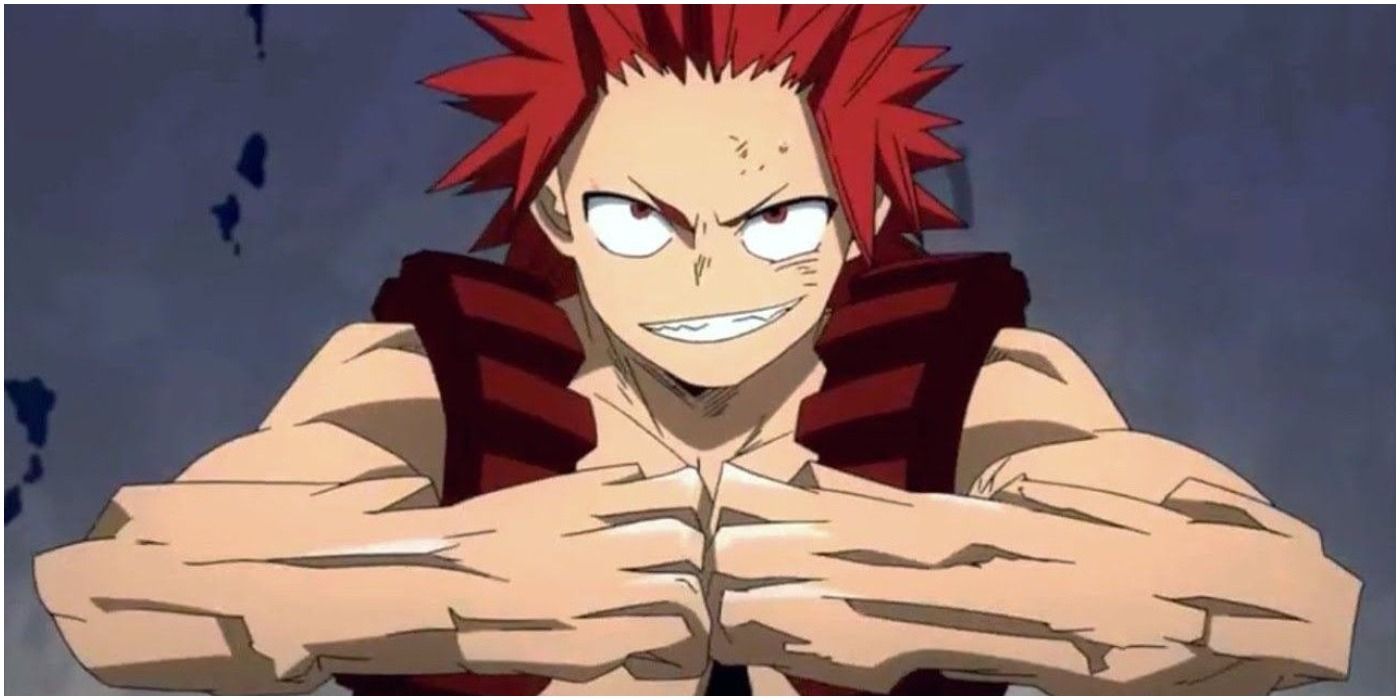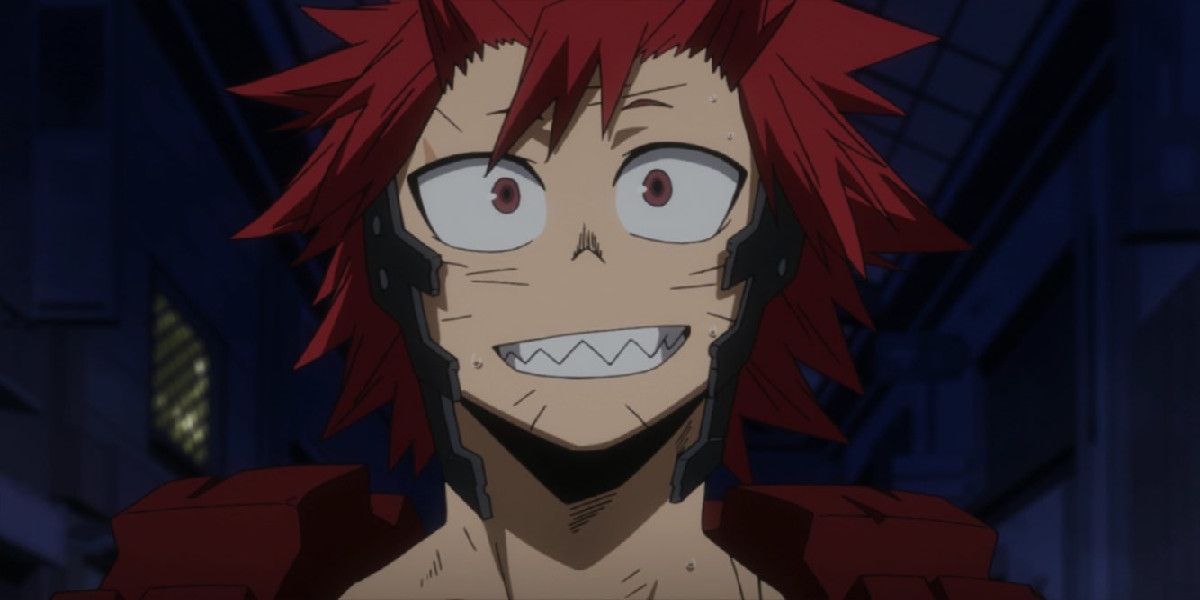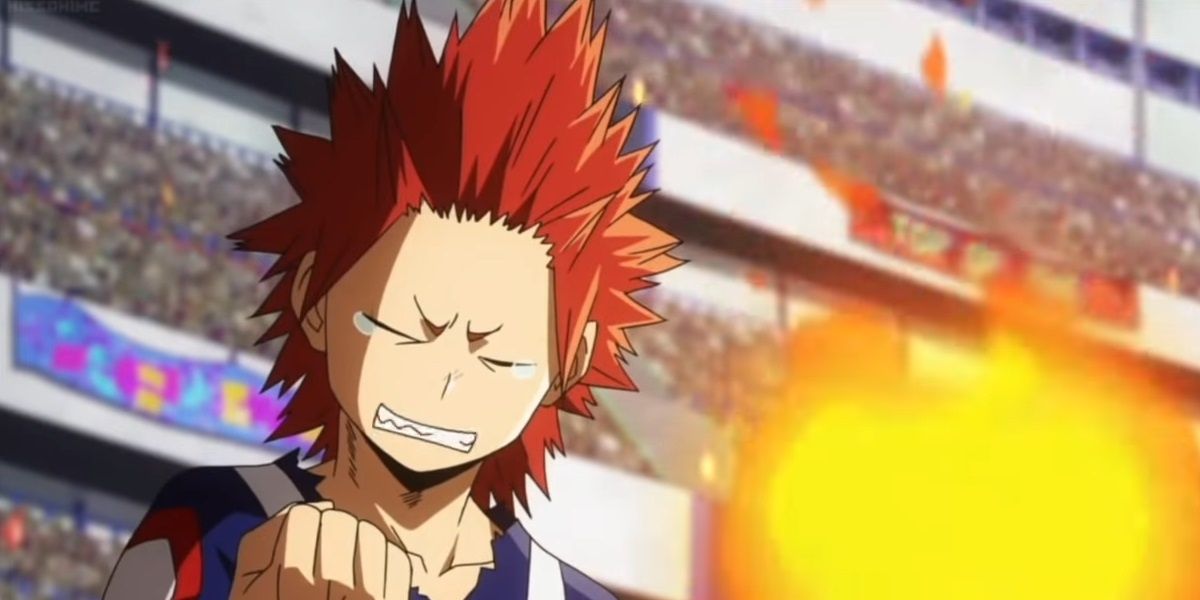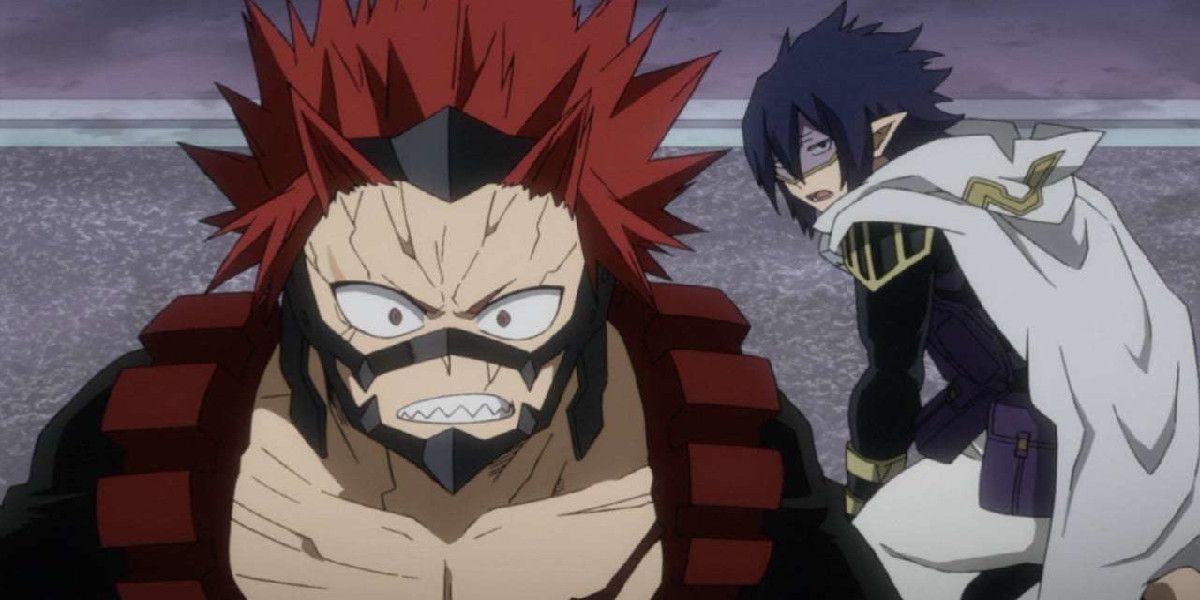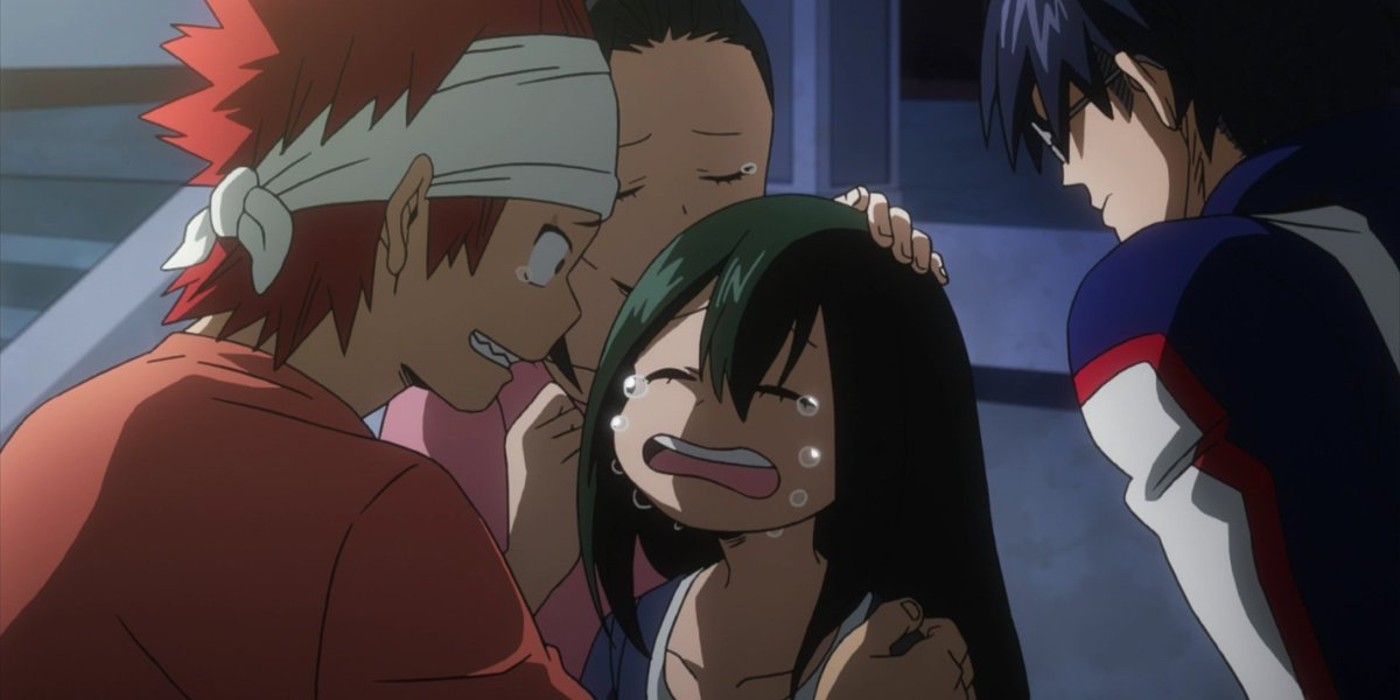Masculinity and understanding what it means to be a man are major themes in many different anime. Usually, these series have male characters trying to prove their manhood by overcoming challenges or following some code of honor. Masculinity is directly tied to a character's power, how many fights they've won or their ability to protect their friends. Although strength, perseverance through adversity and loyalty to friends are positive qualities, characters that are hyper-focused on being a man tend to embrace certain negative qualities as well.
Anime characters that make masculinity a big part of their personality often take on aspects of toxic masculinity. They frequently don't openly share their emotions or allow themselves to be vulnerable. In their pursuit of strength, they often take on a hyper-competitive persona and focus solely on defeating their competition. Because these characters view being a man as the ultimate goal, they tend to hold strong prejudice against women. My Hero Academia's Ejiro Kirishima bucks all these negative trends and shines as an example of healthy masculinity.
What Does Being a Man Mean To Kirishima?
For most of his life, Kirishima has centered his personality and aesthetic around masculinity. He constantly strives to achieve this idealized version of manhood. He has modeled himself after his favorite Pro Hero, Crimson Riot, who also embraces masculinity. Kirishima describes things and qualities that he likes as "manly" and the ones he doesn't like as "unmanly." His profile even says that manliness is his favorite thing. To him, there is nothing greater than being a man.
Although strength and power are important to him, these qualities are not the focus of Kirishima's version of manhood. This is what separates him from toxic masculinity. Chivalry, loyalty, bravery and honor are far more important to Kirishima than just being strong. Unlike Bakugo, Kirishima is not trying to prove that he is the strongest or best hero. He only wants to get stronger so that he can better fit his version of masculinity.
Kirishima Proves that Crying Can Be Manly
Kirishima never hides his emotions like many other male anime characters, who may be hesitant or outright refuse to tell the people close to them what they're feeling or how much they care. Kirishima does the opposite of this. He can be brought to tears when he sees his friends act particularly "manly." He shows great concern when one of his friends is in danger or is upset and often even tries to get Bakugo to open up more. To Kirishima, a man doesn't need to hold back his feelings.
Emotional vulnerability can be a masculine trait, and Kirishima understands this. His ability to openly share his feelings and understand the feelings of those around him is the reason he has such a close relationship with antisocial characters like Bakugo and Tamaki. Kirishima's relationship with Bakugo saved his life during the Kamino Incident. He also used his emotional maturity to help his senpai, Tamaki Amakiji, build self-confidence. Kirishima not only expresses his feelings in a healthy way but tries to get his friends to do the same.
Kirishima Lifts Others Up
Because masculinity is often attached to being the strongest, it can cause characters to be overly competitive. Contests stop being about comparing skills and abilities against peers and become more about crushing those beneath you. This can lead to characters being needlessly antagonistic towards their friends and allies. This is what happened with Bakugo during the Sports Festival. He constantly insulted and brought down people who were supposed to be his friends.
Kirishima didn't have this issue. Although he did want to win the competition and fought his hardest, he was never abusive toward his opponents. He was always respectable and behaved honorably to the people he fought against. After defeating Tetsutetsu, Kirishima didn't gloat over his victory or hurl insults. He congratulated Tetsutesu on his strength and praised him for his "manly" behavior. The two of them became close friends after that.
Kirishima doesn't need to dominate his enemies as Bakugo does. He understands that others don't need to fail in order for him to win. He wants his friends to grow stronger alongside him. As a result, Kirishima doesn't become offended when others surpass him in power but instead is motivated by their hard work. A victory for everyone is also a victory for him.
Kirishima Has a Deep Respect for Women
Typically, characters that embrace masculinity have negative views toward femininity and women. If being a man means being brave and strong, being a woman has to mean being cowardly and weak. This mindset can cause characters to be demeaning or patronizing toward women. These characters begin to believe that women don't belong in combat situations or deserve the same respect as men.
Kirishima manages to not fall into this toxic mindset. Qualities that Kirishima finds dishonorable are never described as womanly or feminine. Improper attributes or personalities are simply deemed "unmanly." This leaves room for women to strive for the same heroic qualities that Kirishima is trying to achieve. Although he has a chivalrous personality, he never treats women as if they can't protect themselves. He knows that the women in his class worked just as hard as he did to get into UA.
In fact, Kirishima looks up to at least one of his female classmates. Mina Ashido defended her fellow students from bullies and villainous threats when Kirishima was too scared to act. The courage that Mina showed inspired him to work harder to become the confident person that he wanted to be. Even though Kirishima looks up to masculine heroes, he also finds inspiration in the women around him. Kirishima shows that masculinity does not have to be cruel, abusive or misogynistic. Masculinity can be performed in a healthy manner that encourages emotional vulnerability, cooperation and equal partnership.

